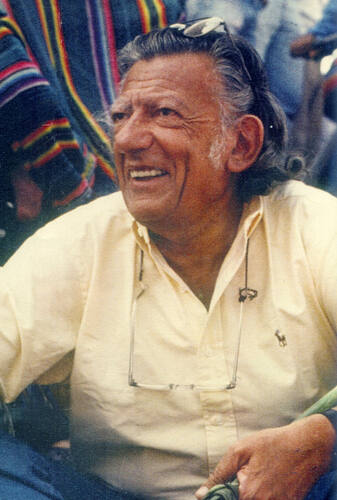1976-1995 UNDP/UNESCO Latin American Regional Project Archives

During the years 1976 – 1995 Unesco in collaboration with UNDP and the World Heritage Centre assisted Latin American governments in the establishment and execution of a regional project of cultural/urban and environmental heritage. The Regional Project had its headquarters in Lima, Peru for almost 19 years. It started with six participating countries in the Andean region, namely Bolivia, Chile, Colombia, Ecuador, Peru and Venezuela.
By 1995 there were 26 participating countries in Latin America and the Caribbean in the development and execution of the project:
- Barbados
- Belize
- Bolivia
- Brazil
- Cayman Islands
- Colombia
- Costa Rica
- Cuba
- Chile
- Dominican Republic
- Ecuador
- El Salvador
- Guatemala
- Honduras
- Jamaica
- Mexico
- Montserrat
- Nicaragua
- Panama
- Paraguay
- Peru
- Saint Lucia
- Surinam
- Turks and Caicos Islands
- Uruguay
- Venezuela
The immediate objectives of the project were the following:
- conservation of the urban heritage, architectural restoration and rehabilitation/ renewal of historic sites, monuments, the urban environment, especially within historical inner cities.
- Conservation of movable cultural property across the region, stressing on institution and capacity building, training of human resources, leading to the establishment of a network of communication channels among conservation centers and museums. Conservation centers to be set up in various countries dealing with the preservation and enhancement of movable patrimony such as textiles, stone, wall paintings, oil paintings, polychrome wood, wood carvings, etc.
- Conservation and enhancement of cultural heritage protecting and enhancing the bio-cultural diversity of different ecosystems, initiated originally in the Andean-Indian region gradually moving to the Caribbean (with CARICOM) and later on in the Maya region of Mexico and Central America.
Cultural heritage going beyond culture
The Unesco / UNDP Regional Project kept up with the evolution of the concept of cultural heritage going beyond culture. The interdisciplinarity of cultural heritage work along with issues social/human development was emphasized. This gave sustainability to the conservation and enhancement of cultural and natural heritage.
With a contribution of UNDP of almost 3.5 million dollars over 19 years for this Regional Project, another 18.5 million dollars was provided/raised by again by UNDP at the country level, Unesco’s regular program as well as WHC funds, and contributions from foundations, ngo’s, and the International Banking Community for pre-investment activities embodied within the framework of this Regional Project.
The Regional Project also undertook on behalf/for the World Heritage Committee of Unesco a systematic monitoring exercise of World Heritage Sites in Latin America and the Caribbean. The monitoring was done in collaboration with state parties of WHC/members of the Regional Project.
The activities and results obtained by the project in Latin America and the Caribbean have been reported to governments, UNDP, Unesco within the norms of technical cooperation procedures.
Publications
It is to be noted that in addition to these reports the Project produced/published almost 100 publications. These publications reflect the activities of the Regional Project as well as some national UNDP/UNESCO projects, and UNESCO as such in some 26 countries in Latin America and the Caribbean.
The subject matters are:
- Monuments and Urban Compounds/ Historic Cities/ Built Heritage
- International Campaigns (Unesco)
- Conservation and Restoration of Cultural Heritage (Movable)
- Museums
- Construction Materials – Built Heritage
- Archaeology
- Traditional Technologies
- Feasibility Studies
- Human and Economic Resources in Cultural Heritage
- Music, Dance, Theater, Traditions
- Comics and Educational Material
- Social Communication and Heritage
- Monitoring Reports